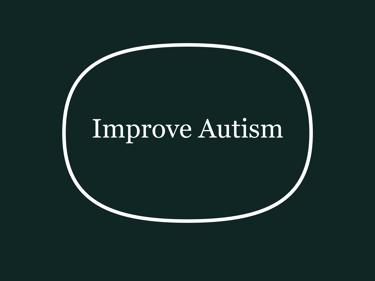First Application of Fecal Microbiota Transplantation in Adult Asperger Syndrome With Digestive Symptoms—A Case Report
Authors:
Huang, H.L., Xu, H.M., Liu, Y.D., Shou, D.W., Chen, H.T., Nie, Y.Q., Li, Y.Q. and Zhou, Y.J.
https://pubmed.ncbi.nlm.nih.gov/35370847/
doi: 10.3389/fpsyt.2022.695481
Summary of the Article
The article "Application of a Ketogenic Diet in Children With Autistic Behavior: Pilot Study" by Evangeliou et al., published in the Journal of Child Neurology (2003), reports on a pilot study involving 30 children aged 4–10 years with autistic behavior. The study explored the effects of a ketogenic diet over 6 months, aiming to determine if it could improve autistic symptoms as assessed by the Childhood Autism Rating Scale (CARS). The diet was administered in cycles of 4 weeks on and 2 weeks off. Out of the 30 participants, 23 tolerated the diet beyond 4 weeks, and 18 completed the full 6 months. The study found that 60% of the participants who completed the diet showed behavioral improvements, with the most notable gains in milder cases. The researchers suggest that the ketogenic diet may enhance mitochondrial function or address glucose metabolism issues, though the exact mechanism remains unclear. Due to the small sample size and lack of a control group, the authors call for further research to validate these preliminary findings.
Key Findings
Behavioral Improvements:
Significant Improvement (>12 CARS units): 2 children (initial CARS: 35.00 ± 1.41).
Average Improvement (8–12 CARS units): 8 children (initial CARS: 41.88 ± 3.14).
Minor Improvement (2–8 CARS units): 8 children (initial CARS: 45.25 ± 2.76).
Overall, 18 out of 30 children (60%) showed some improvement.
Diet Tolerance:
23 out of 30 (76.6%) tolerated the diet beyond 4 weeks.
18 out of 30 (60%) completed the full 6 months.
Additional Observations:
The two children with significant improvement had milder symptoms initially and could attend mainstream schools afterward.
Children with severe autism showed moderate or minor improvements.
Improvements persisted during diet-free intervals and for 6 months post-diet.
Six children had elevated β-hydroxybutyrate levels after glucose loading, hinting at mitochondrial dysfunction, though not all improved on the diet.
Details of the Diet
Type of Diet: John Radcliffe ketogenic diet.
Composition: 30% medium-chain triglyceride (MCT) oil, 30% fresh cream, 11% saturated fat, 19% carbohydrates, 10% protein, plus vitamin and mineral supplements.
Duration: 6 months total.
Schedule: 4 weeks on the diet, followed by 2-week diet-free intervals.
Symptoms That Improved
Social behavior and interactions.
Speech.
Cooperation.
Stereotypy (repetitive behaviors).
Hyperactivity (enhancing learning abilities).
Percentage of Participants Who Improved
60% (18 out of 30) showed improvement:
6.7% (2 out of 30) with significant improvement.
26.7% (8 out of 30) with average improvement.
26.7% (8 out of 30) with minor improvement.
40% (12 out of 30) either did not tolerate the diet or discontinued early due to lack of improvement.
Timeline for Symptom Improvement
Improvements were evaluated at the end of the 6-month period.
The exact onset of improvements wasn’t specified, but benefits persisted during the 2-week diet-free intervals and for at least 6 months after the diet ended.
Considerations (Pros and Cons)
Pros:
Can significantly improve behavior, especially in milder cases.
May reduce reliance on medications like haloperidol.
Effects persist post-diet.
Cons:
Challenging to maintain, particularly for children with mental retardation.
Only 60% completed the diet, suggesting adherence issues.
Less effective for severe autism cases.
Small sample size and no control group weaken the evidence.


